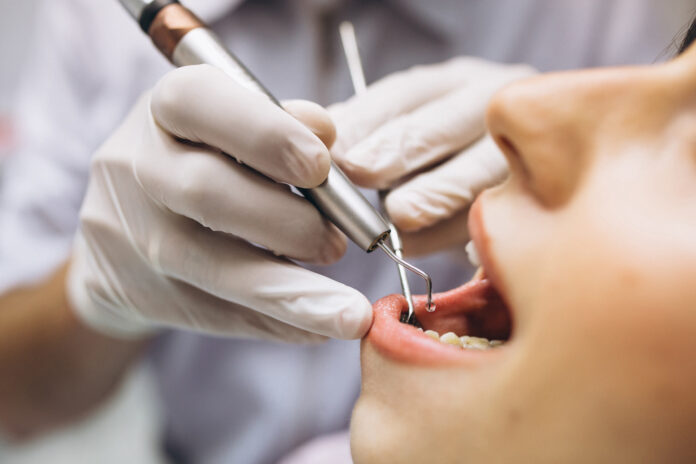
Dr. Jeffrey Chaffin, Chief Dental Officer for Delta Dental of Iowa, shares an update on the connections between COVID-19 and oral health, and key considerations to help protect your overall health.
Q: Can you share a brief overview of the research linking COVID-19 severity and oral health status?
Dr. Chaffin: There is a lot of emerging research on COVID-19. It seems like researchers learn more each week during this pandemic and the new learnings are more evidence-based.
Some of the recent studies on oral health and COVID-19 focus on gum disease. We often use gum disease as a more global term, with gingivitis being early gum disease with inflamed gums but no loss of tooth. Gingivitis can progress to periodontitis, the most serious form of gum disease. Periodontitis is when we see destruction of the supporting bone and even tooth loss from inflammation and bacteria.
A recent study reported that COVID-19 patients with gum disease were three-and-a-half times more likely to be admitted to the intensive care unit, four-and-a-half times more likely to need a ventilator and nearly nine times more likely to die compared to those without gum disease.
1 It’s important to know that gum disease doesn’t cause COVID-19, but severe gum disease can be a sign of overall poor health — and that overall poor health is often a factor in how severe a person’s COVID-19 case will be.
Q: Based on what we know about these study findings so far, what is the main takeaway we should understand?
Dr. Chaffin: The latest research emphasizes the importance of good overall and oral health, and that good oral health is a part of overall health. A person’s body must be healthy to combat diseases and viruses. COVID-19 is serious, but it’s only one of the viruses we encounter throughout our lives. Taking your overall health seriously will help you lead a happier and healthier life.
Q: Some patients have put their twice-yearly dental visits on hold due to concern for COVID-19. What would you say to patients who might be worried about their risk for contracting COVID-19 in the dental environment?
Dr. Chaffin: I totally understand why patients may have delayed routine dental care early in the pandemic. Many dental offices were closed for a few months. Those closures shouldn’t scare patients, as a major reason for the closure was the shortage of personal protective equipment (PPE). Closing dental offices and delaying routine medical appointments saved the protective equipment for the most serious health conditions and the surge of COVID-19 patients.
Dentistry has always been a leader in infection control and has modified its procedures for COVID-19. To date, there is no known transmission of COVID-19 in a dental care setting.
Many patients have restarted their dental preventive visits over the last year. Given that overall and oral health are so important, I think that almost everyone should keep up with their routine dental preventive care. There may be a small segment of the population that is at extreme risk of getting COVID-19 and other viruses based on their health conditions. In those limited situations, those patients should seek advice from their medical and dental providers before restarting routine preventive dental care. In the event of a dental emergency, teledentistry may be an option for at-risk individuals. Check with your dental benefits provider for more information.
Q: Looking at how COVID-19 severity and oral health are connected, what does this say about the importance of oral health to the total health picture?
Dr. Chaffin: I believe that this is another scenario that shows the connection between oral and overall health. Good oral health is a major predictor in one’s quality of life, but it is much more than just quality of life. The mouth is a part of the body — just because the providers who treat diseases of the mouth may be different from providers who treat diseases in other parts of the body doesn’t minimize the importance of oral health to overall health.
Q: Do you have any other words of advice for patients about their oral health and COVID-19?
Dr. Chaffin: The first thing is to take COVID-19 seriously. Preventive measures are available for everyone to be safe. Often, those preventive measures are not only for our own personal health, but also for the health of our families and those in our community. Patients should schedule their routine preventive dental care because minor dental conditions can become worse and more expensive to treat over time.
Everyone should assess their own risk, but most people find that visiting the dentist is safe and important part of maintaining good health.
1 Association between periodontitis and severity of COVID‐19 infection: A case–control study” by Wenji Cai, Belinda Nicolau and al. was published in the Journal of Clinical Periodontology, 2021
Dr. Jeffrey Chaffin is Chief Dental Officer for Delta Dental of Iowa.




